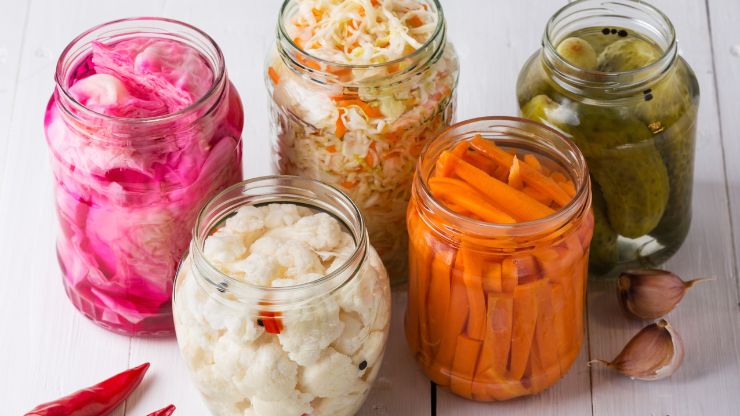How to include more fermented foods in your diet – Welcome to the world of improved health and vitality through the incorporation of fermented foods into your diet. Fermentation has been a culinary tradition across cultures, offering a plethora of benefits for both gut and overall well-being.
In this guide, we will explore the diverse landscape of fermented foods, from tangy sauerkraut to probiotic-rich yogurt. Discover the science behind fermentation and its positive impact on digestion, nutrient absorption, and immune support. Whether you’re a seasoned enthusiast or new to fermented foods, this guide will provide practical tips for seamlessly integrating them into your daily meals.
Embrace the delicious journey of enhancing your culinary experience while nurturing your body from the inside out. Get ready to savor the flavors and unlock the potential health benefits that fermented foods bring to the table.
Table of Contents
ToggleImportance of a balanced and diverse diet
Maintaining a balanced and diverse diet is essential for promoting overall health and well-being. A diet rich in a variety of nutrients, vitamins, minerals, and macronutrients ensures that your body receives the necessary components for optimal functioning. Here are key reasons highlighting the importance of a balanced and diverse diet:
- Nutrient Adequacy: Different foods contain different nutrients. Consuming a diverse range of foods helps ensure that you get a broad spectrum of essential nutrients, reducing the risk of deficiencies.
- Optimal Body Function: Nutrients play crucial roles in various bodily functions, including metabolism, immune function, and hormone regulation. A balanced diet supports these functions, promoting energy, vitality, and overall health.
- Weight Management: A diverse diet can contribute to maintaining a healthy weight by preventing overreliance on specific, potentially unhealthy, food groups. This can help regulate calorie intake and support weight loss or maintenance.
- Disease Prevention: A balanced diet is associated with a lower risk of chronic diseases such as heart disease, diabetes, and certain cancers. Consuming a variety of foods provides protective compounds and antioxidants that contribute to overall health.
- Digestive Health: Different types of foods contain varying levels of fiber and other compounds important for digestive health. A diverse diet promotes a healthy gut microbiome and regular bowel movements.
- Mental Well-being: Certain nutrients play a role in brain function and mood regulation. A diverse diet that includes a range of nutrients can positively impact mental health and cognitive function.
- Reduced Food Sensitivities: Overconsumption of specific foods may contribute to food sensitivities or intolerances. Diversifying your diet can reduce the risk of developing sensitivities and promote tolerance to a wider range of foods.
- Culinary Enjoyment: A diverse diet introduces a variety of flavors, textures, and culinary experiences, making meals more enjoyable. This can contribute to a positive relationship with food and sustainable dietary habits.
Also, Read – Fermented Beet Salad
How to include more fermented foods in your diet
Yogurt
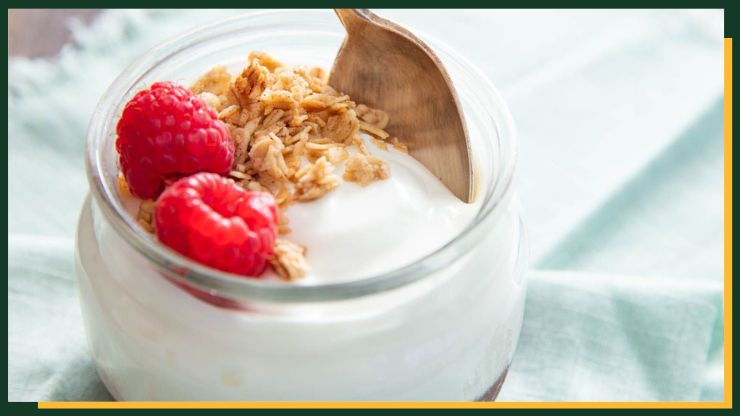
Incorporate yogurt into your diet for probiotic benefits. Choose plain, unsweetened varieties with live cultures. Enjoy it on its own, mix with fruits, or use as a smoothie base. Greek yogurt is a nutritious option. Prioritize unpasteurized sauerkraut for probiotic richness, adding it to salads or sandwiches. Embrace kimchi, a Korean fermented cabbage, in stir-fries or as a side.
Enhance flavor and gut health with miso paste in soups and dressings. Include tempeh, a versatile fermented soy product, in stir-fries or salads. Opt for naturally fermented pickles as snacks or additions to meals. Savor kombucha, a fermented tea, for a refreshing beverage with potential probiotic benefits.
Kefir
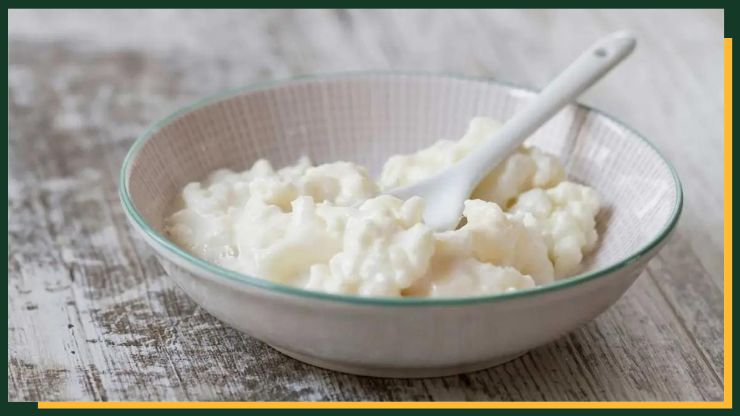
Integrate kefir into your diet for a probiotic boost. This fermented milk drink is rich in beneficial bacteria. Enjoy it on its own or use it as a base for smoothies. With a tangy flavor, kefir contributes to gut health and can be a tasty alternative to regular milk.
Experiment with different fruits or sweeteners to suit your taste. Easily adaptable, kefir serves as a versatile addition to your daily routine. Enhance your breakfast or snack routine with this nutritious, probiotic-packed beverage.
Sauerkraut
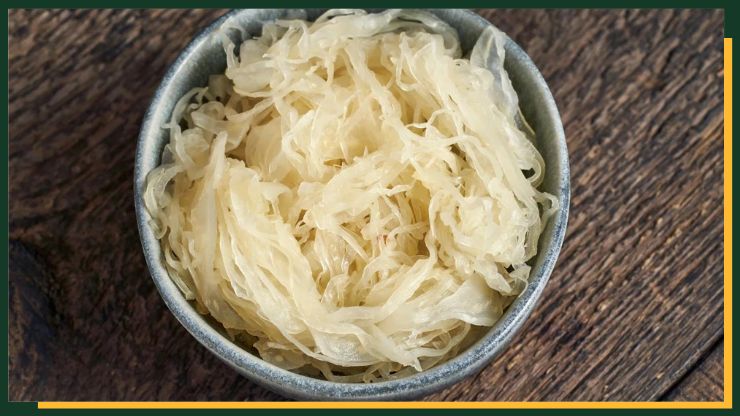
Elevate your meals with sauerkraut, a fermented cabbage dish teeming with probiotics. Opt for unpasteurized varieties to maximize its gut-friendly benefits. Incorporate sauerkraut into salads, sandwiches, or serve it as a flavorful side dish.
Rich in vitamins, fiber, and beneficial microbes, sauerkraut not only adds a tangy crunch but also supports digestive health. Experiment with homemade recipes or explore different flavors available in stores.
This fermented delight not only enhances taste but also introduces a nutritional punch to your diet. Embrace the tradition of sauerkraut to promote gut wellness and diversify your culinary experience.
Kimchi
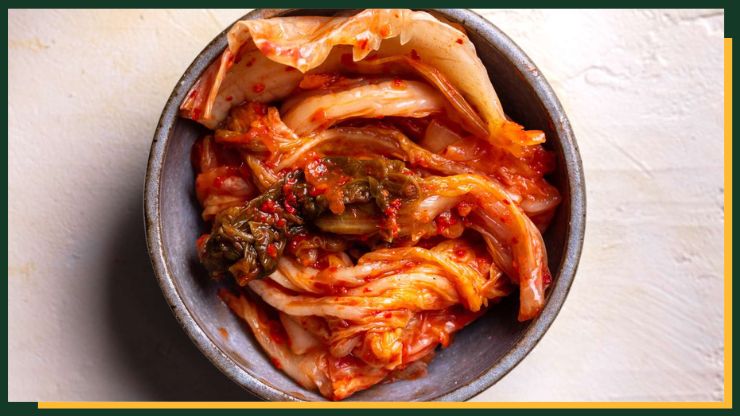
Discover the zing of kimchi, a Korean staple and probiotic-rich delight. Crafted from fermented vegetables, predominantly cabbage, kimchi boasts a unique blend of flavors. Incorporate this spicy, tangy condiment into your diet by enjoying it as a side dish, stirring it into rice or noodle dishes, or adding it to sandwiches.
Packed with vitamins, fiber, and beneficial bacteria, kimchi not only tantalizes your taste buds but also supports gut health. Explore various kimchi varieties, both traditional and modern, to find the one that suits your palate. Elevate your meals with this fermented treasure, embracing the culinary and nutritional benefits it brings.
Miso
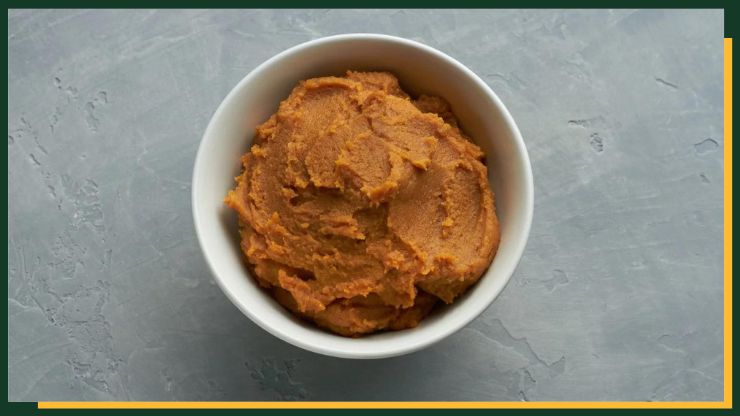
Enhance your culinary repertoire with miso, a Japanese seasoning offering a burst of umami flavor. Crafted through fermenting soybeans with salt and koji, miso adds depth to soups, stews, marinades, and dressings. Rich in essential nutrients and probiotics, miso not only elevates taste but also contributes to gut health.
Experiment with different varieties, like white, red, or yellow miso, each imparting distinct flavors. Use miso sparingly as its concentrated taste can transform dishes with just a small amount. Incorporate this versatile and nutritious ingredient into your cooking to experience the unique and savory notes it brings to a variety of dishes.
Don't just scroll, subscribe!
BuzzTrail's unique web-stories are the cure for boredom you've been waiting for.
Tempeh
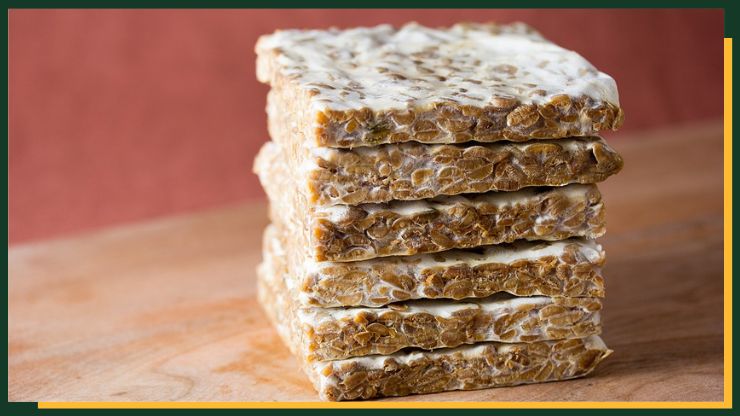
Diversify your plant-based protein sources with tempeh, a versatile and nutritious fermented soy product. With a firm texture and nutty flavor, tempeh is an excellent meat substitute. Incorporate it into your diet by grilling, sautéing, or crumbling it into salads, stir-fries, or sandwiches. Rich in protein, probiotics, and nutrients like iron and calcium, tempeh supports muscle health and overall well-being.
Its fermentation process enhances digestibility and nutrient absorption. Embrace tempeh as a sustainable and satisfying addition to your meals, offering a wholesome alternative for vegetarians and those seeking plant-based protein options. Explore various cooking methods to enjoy its distinct taste and health benefits.
Pickles
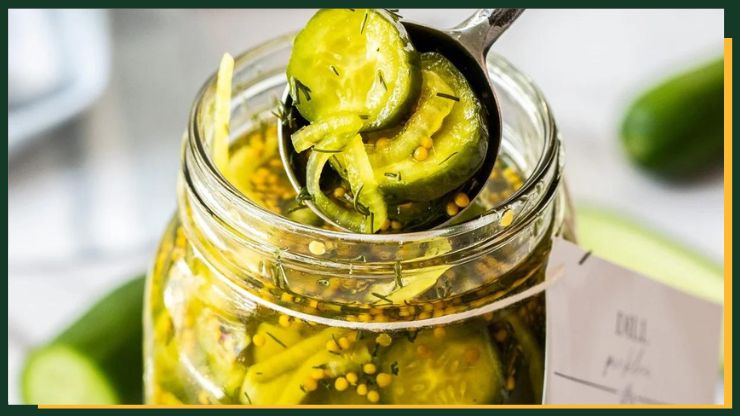
Elevate your snacks and meals with pickles, a crisp and tangy treat that adds flavor and crunch. Opt for naturally fermented pickles over those made with vinegar for probiotic benefits.
Enjoy them on their own as a satisfying snack or incorporate them into salads, sandwiches, or wraps. The fermentation process not only imparts a distinctive taste but also enhances nutritional value, providing gut-friendly bacteria.
Experiment with homemade pickling for personalized flavors, or explore diverse pickle varieties available in stores. With low calories and a refreshing kick, pickles are a versatile and tasty way to introduce a zing to your diet while potentially supporting digestive health.
Kombucha

Indulge in the effervescence of kombucha, a fermented tea that combines refreshment with potential health benefits. Boasting probiotics and antioxidants, this tangy beverage contributes to gut health and immune support. Enjoy it as a stand-alone drink or use it as a base for mocktails and cocktails.
With various flavors available, kombucha offers a delightful alternative to sugary beverages. Incorporate it into your routine to experience a fizzy, flavorful boost while potentially enhancing digestion.
Be mindful of its natural fermentation, which may introduce trace amounts of alcohol. Embrace the diverse world of kombucha flavors to add a bubbly and probiotic-rich twist to your hydration routine.
Natto
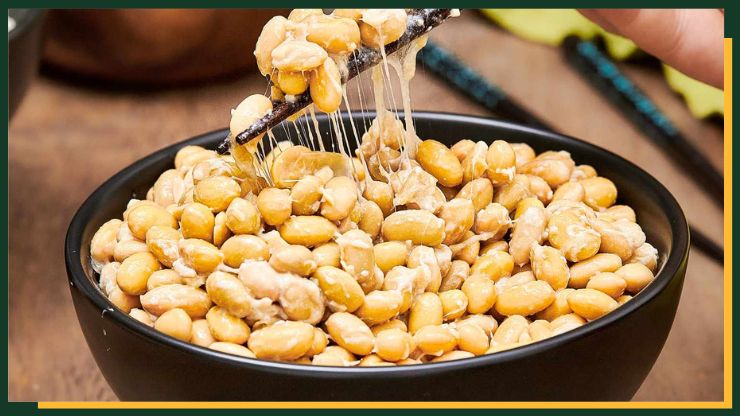
Discover the unique taste and nutritional benefits of natto, a traditional Japanese dish made from fermented soybeans. With a distinct aroma and sticky texture, natto is rich in protein, vitamins, and probiotics.
Enjoy it as a standalone dish over rice or incorporate it into sushi, salads, or wraps. The fermentation process enhances nutrient absorption and promotes gut health. Embrace the umami flavor and explore different serving styles to suit your palate.
While its acquired taste may vary, natto offers a nutrient-dense addition to your diet, providing essential amino acids and potential cardiovascular benefits. Open your culinary horizons by incorporating this Japanese superfood into your meals.
Fermented cheeses
Savor the rich flavors and potential health benefits of fermented cheeses. Cheeses like Gouda, cheddar, and Swiss undergo a fermentation process that not only contributes to their distinct taste but also introduces beneficial bacteria.
Enjoy these cheeses in moderation as they offer a source of probiotics, aiding in gut health. Add them to cheese platters, salads, sandwiches, or enjoy with whole-grain crackers. The fermentation process can enhance nutrient absorption and digestion.
While relishing the diverse textures and flavors, be mindful of portion sizes due to the calorie content. Incorporate fermented cheeses into your diet for a delightful blend of taste and potential probiotic support.
Conclusion
In conclusion, embracing a balanced and diverse diet is not just a choice; it’s a commitment to overall well-being. By incorporating a variety of nutrient-rich foods, you provide your body with the tools it needs for optimal function and resilience against illness. Beyond the physical benefits, a diverse diet enhances the enjoyment of meals, fostering a positive relationship with food.
Make the choice to savor the richness of flavors, prioritize your health, and embark on a journey toward a more vibrant and fulfilling life through the simple act of nourishing yourself with a diverse array of wholesome foods.
FAQs
Why should I include fermented foods in my diet?
Why should I include fermented foods in my diet?
Fermented foods are rich in probiotics, promoting a healthy gut microbiome. They enhance digestion, boost nutrient absorption, and support immune function, contributing to overall well-being.
How can I start incorporating fermented foods if I’m new to them?
How can I start incorporating fermented foods if I’m new to them?
Begin gradually to allow your taste buds to adjust. Start with milder options like yogurt or kefir and gradually explore more intense flavors like kimchi or miso.
Can I make fermented foods at home?
Can I make fermented foods at home?
Absolutely! Basic fermented foods like sauerkraut and yogurt can be easily made at home. Simple recipes and starter kits are available, allowing you to control ingredients and fermentation time.

